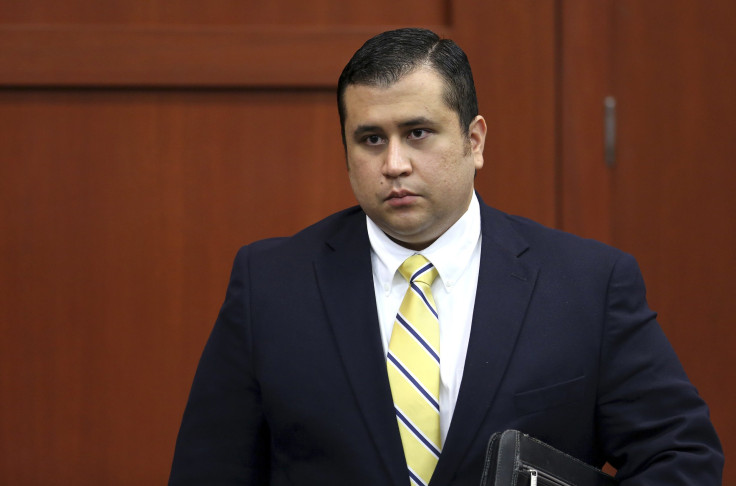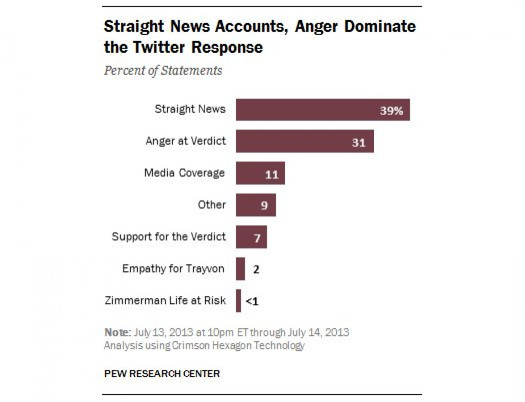Trayvon Martin Case: One-Third Of Twitter Users Expressed Anger Over The George Zimmerman Acquittal, Says Pew Research Study

When the acquittal of George Zimmerman in the killing of Trayvon Martin was announced July 13, Twitter erupted with a heated mix of opinions on the verdict. From cries of outrage to expressions of support for the jury’s decision, people across the microblogging social network had a ton to say. And now we have detailed figures on the way Twitter users communicated their opinions in the first 26 hours after the announcement of the verdict.
The Pew Research Center collaborated with a social-media analytics company, Crimson Hexagon, to analyze 4.9 million tweets centered on the verdict, Trayvon Martin and George Zimmerman. According to Pew, “Crimson Hexagon identifies statistical patterns in words used on Twitter and includes all public Twitter posts.” That way, the researchers were able to figure out which topics people were discussing without having a human or humans pore over millions of tweets.

The analysis indicated the highest proportion of tweets regarding the verdict were straight-news updates, with 39 percent of them classified in this category. Encompassing both retweets of news-media material and tweets by people who initially reacted to the verdict by simply posting the jury’s decision, it is no shock these were the dominant posts.
The second-highest proportion of tweets were described as those expressing “anger at verdict,” with 31 percent of them in this category. In contrast, only 7 percent expressed “support for the verdict.”
The third-highest proportion of tweets were described as those about “media coverage,” with 11 percent of them in this category.
“The level of Twitter engagement in the case spiked dramatically after the verdict,” Pew reported. “The nearly 5 million tweets (4.9 million) in the first 26 hours after the verdict virtually equaled the total volume of tweets (5.1 million) about the case posted during the entirety of the 33-day trial. By way of comparison, there were 4.7 million tweets alone on July 14 in contrast with an average of about 151,000 tweets each day during the trial.”
© Copyright IBTimes 2024. All rights reserved.






















